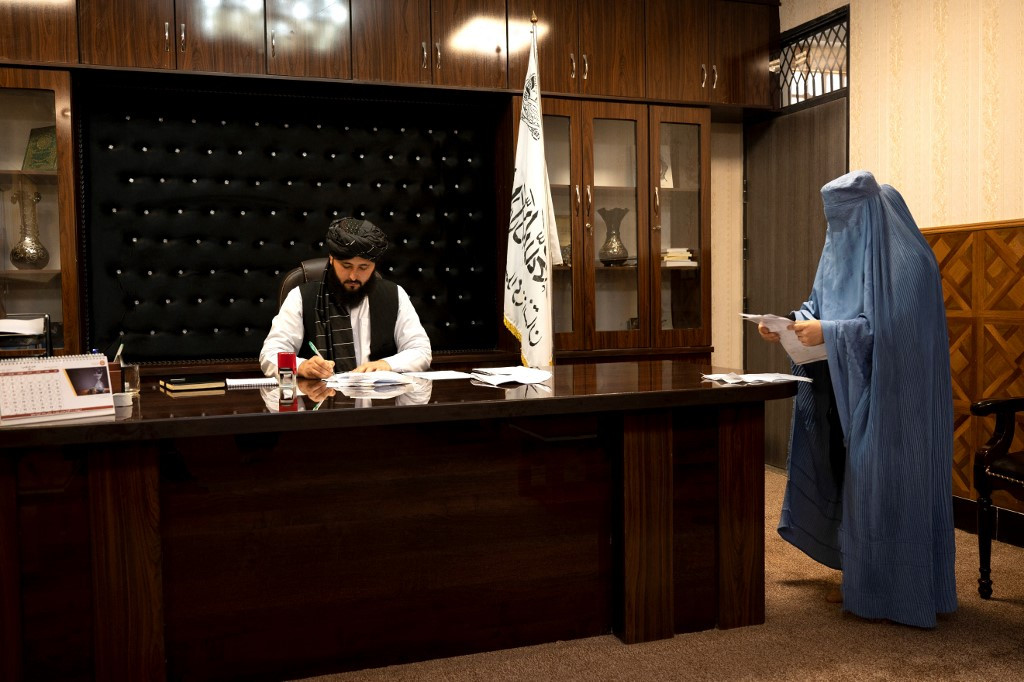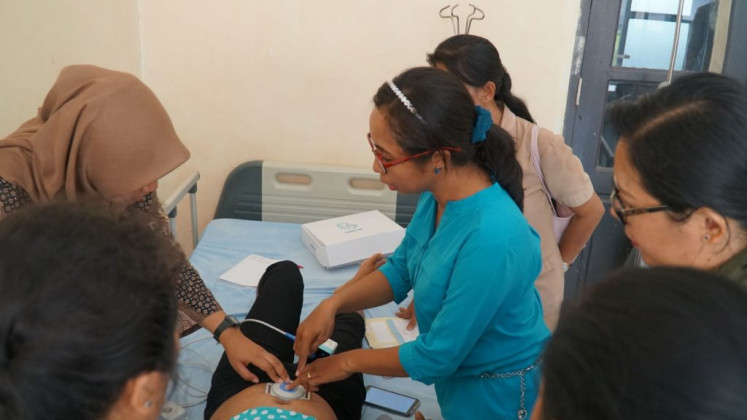Popular Reads
Top Results
Can't find what you're looking for?
View all search resultsPopular Reads
Top Results
Can't find what you're looking for?
View all search resultsWith Afghanistan at a crossroads, China lends a helping hand
Today, more than 24 million people across Afghanistan need humanitarian support to survive, but the United Nations goal of providing US$4.44 billion in humanitarian funding to Afghanistan has seen little progress.
Change text size
Gift Premium Articles
to Anyone
T
he third foreign ministers' meeting of the neighboring countries of Afghanistan was held in Tunxi, Anhui province, China, on Thursday. Focusing on the situation in Afghanistan and its future, the meeting issued a joint statement covering five areas: political and diplomatic fields, economic and humanitarian fields, counterterrorism and security, refugees and institution building.
The joint statement not only demonstrates the determination of the neighboring countries to strengthen communication and work together to help Afghanistan achieve stable development, it also conveys the concerns and expectations of the international community for Afghanistan.
In the current complex and volatile international situation, the meeting provides new ideas for addressing security problems, which is not only significant for Afghanistan, but also important for the international community as a reference.
The first meeting last September officially launched the coordination and cooperation mechanism for Afghanistan’s neighbors. At the time, the irresponsible withdrawal of the United States and its allies, coupled with the major changes to the Afghan political landscape, had left more than 30 million people in the country struggling to cope with multiple challenges, including a humanitarian crisis, economic difficulties, livelihood problems and the COVID-19 pandemic.
In response, the country's neighbors came to a political consensus on working together to help Afghanistan, believing that they as neighbors had a unique role to play in providing a favorable external environment for the stability and reconstruction of Afghanistan. This new mechanism is essential at this critical juncture, as Afghanistan turns from chaos to peace.
In less than a year, Afghanistan's neighbors have held three foreign ministers' meetings, reflecting the great importance they attach to the Afghan issue. Under the mechanism, a lot of fruitful work has been carried out and many important consensuses reached. At the same time, the neighbors have maintained active communication with the interim government of Afghanistan and cooperated with various international mechanisms on the Afghan issue to bring about positive development in the overall situation in Afghanistan. The efforts have been widely recognized by the international community.
Even as Afghanistan still faces severe challenges in many dimensions, such as its humanitarian crisis, economic recovery, counterterrorism and national governance, what the US had done has aggravated the problems. In February, US President Joe Biden signed an executive order to “share” the US$7 billion of assets deposited in America by the Afghan central bank, refusing to return them to the Afghan interim government. This move has been strongly criticized by Afghanistan and the international community.
More worryingly, Afghanistan seems to have been forgotten by the Western world in the wake of the Ukrainian crisis. Today, more than 24 million people across Afghanistan need humanitarian support for them to survive, but the United Nations goal of providing $4.44 billion in humanitarian funding to Afghanistan has seen little progress. The UN High Commissioner for Refugees (UNHCR), while watching out for Ukraine, had to appeal to the international community for support to the Afghans to prevent another humanitarian crisis.
Therefore, this international meeting in China focusing on Afghanistan is important and timely. This is a reminder to the international community that the Afghan issue is still high on the current international peace and security agenda. The world should not forget Afghanistan, and the US should not deliberately ignore and stay away from the Afghan issue.
It is better for the doer to undo what he has done. The US and the Western world should take up their primary responsibility for the reconstruction and development of Afghanistan and return the property of the Afghan people as soon as possible. To truly help Afghanistan get through the difficulties, the more efforts to alleviate the country's humanitarian crisis, the better, and the fewer unnecessary moves to create troubles, the merrier.
The third foreign ministers’ meeting of the neighboring countries of Afghanistan is another important contribution China has made to achieving enduring peace and stable development in Afghanistan. In order to make the meeting even more productive and promote the implementation of the outcomes of previous meetings, China has been working for agreement to launch a mechanism for regular meetings among special envoys for Afghanistan of the neighboring countries and establish three working groups on political and diplomatic, economic and humanitarian, as well as security and stability affairs.
Foreign ministers from the Afghan interim government, Qatar and Indonesia were invited to the meeting for the first time. And China presided over the meeting on the "China-US-Russia plus" consultation mechanism on Afghanistan.
China’s efforts show that no matter how the international situation may evolve and change, China, as a responsible country and one of the neighbors of Afghanistan, will not change its foreign policy toward its neighbors, nor its diplomatic principle for upholding justice.
On the one hand, China acknowledges the efforts of the Afghan interim government from the perspective of history and development and works with the international community to exert positive influence on the development of the situation in Afghanistan and better integrate the country into the mainstream of the international community.
On the other hand, China opposes the abuse of sanctions, commits to resolving differences through dialogue and consultation and takes the meeting as an opportunity for all parties to build consensus on the basis of respect for sovereignty and territorial integrity.
China encourages Afghanistan to establish a more inclusive and open political architecture, take more moderate and steadier internal and external policies and combat terrorism effectively.
Afghanistan has gone through a long, dark winter and is now embracing a hopeful spring. There is reason to believe that the successful convening of the third foreign ministers' meeting of the neighboring countries of Afghanistan will bring new and greater hope for Afghanistan to get out of its current predicament and back on the track of sound progress and explore a development path that is in line with not only its own national conditions but also the trend of the times at an early date.
***
The writer is director of the research department at the National Institute of Strategic Studies at Tsinghua University.











